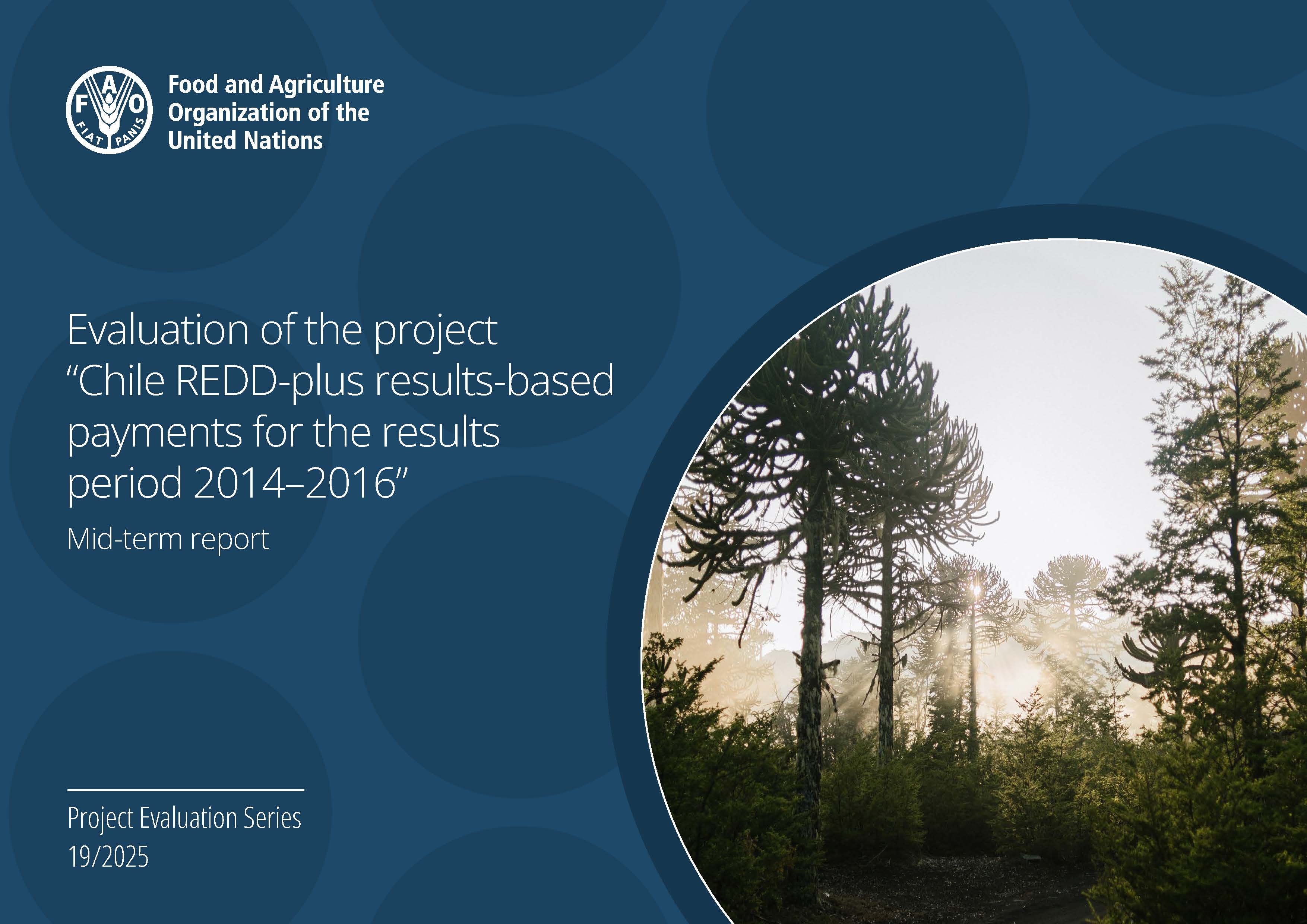Completed evaluations

Evaluation of the FAO Flexible Voluntary Contribution Mechanism
23/10/2025
The evaluation found FVC management costs to be modest and noted commendable progress in leveraging corporate systems. However, sustained efforts are needed to enhance strategic prioritization in resource allocation, improve internal and external communications, and strengthen processes for demonstrating long-term impact and sustainability. The findings will inform strategic dialogue between FAO and its resource partners to determine the future viability and value proposition of this Fund.

Evaluation of the project "Building a Resilient Churia Region in Nepal"
16/10/2025
The evaluation made recommendations to optimize each partner’s role and budget to allow for greater efficiencies and delivery improvements; update plans accordingly; address persistent staffing and expertise gaps; strengthen systems for monitoring and accountability; and build stronger collaborative partnerships for further climate resilience initiatives.

Evaluation of the project "Transforming the Indus Basin with Climate Resilient Agriculture and Water Management"
15/10/2025
This interim evaluation reviews progress of the Green Climate Fund–financed project “Transforming the Indus Basin with Climate Resilient Agriculture and Water Management,” executed by FAO with co-financing from the Governments of Punjab and Sindh. Covering March 2020–December 2024, and led by the FAO Office of Evaluation, it assesses performance against GCF criteria, validates the project’s theory of change, and captures stakeholder feedback.

Terminal evaluation of the project "The Coastal Fisheries Initiative Global Partnership”
07/10/2025
The project aims to strengthen global partnerships for sustainable coastal fisheries management and marine biodiversity conservation across West Africa, Latin America and Asia. Lessons learned highlight the need for robust, formalized coordination and integrated monitoring and knowledge management systems to fully realize the benefits of global partnerships in sustainable fisheries management.

Evaluation of the project “Building Resilience of Syrians under Temporary Protection and Host Communities in Türkiye through Supporting Socio-Economic Integration and Creating Livelihood Opportunities”
09/09/2025
The project successfully supported Syrians under Temporary Protection (SuTPs) and host communities by addressing labour market needs, strengthening agricultural practices, and expanding economic opportunities for women. The evaluation recommends a more holistic approach to combining policy incentives to render the contribution of ISKUR Employment Desks effective in supporting the employability of SuTPs.

Terminal evaluation of the project "Mainstreaming Biodiversity Conservation and Sustainable Use into Inland Fisheries Practices in Freshwater Ecosystems of High Conservation Value"
22/07/2025
The evaluation provides the following recommendations: i) widely disseminate results, lessons learned and stories to maintain momentum and enhance sustainability; ii) build a business case for inland fisheries within three months of project closure; iii) prepare a Project Identification Form to access GEF-8 funding for a potential IFish 2 project; and iv) ensure future projects include a cross-agency project steering committee to streamline synergy and align with related programmes.

Evaluation of the project "Chile REDD+ results-based payments for results period 2014–2016" - Mid-term report
22/07/2025
Regarding challenges, the following are highlighted: simplification of procedures and protocols in the areas of safeguards and monitoring, reporting, and verification, as well as strengthening technical capacities. There is growing awareness of sustainable forest management, although the costs associated with implementing the benefit-sharing system were higher than expected.

Evaluation of FAO’s support to the Global Health Security Agenda to address Zoonotic Disease and Animal Health in Africa and Asia
15/07/2025
This evaluation identifies lessons learned and good practices from FAO’s implementation of the Global Health Security Agenda (GHSA-FAO), an eight-year programme to strengthen health systems in 20 countries across Africa and Asia. The evaluation finds that GHSA-FAO made important contributions to workforce development, laboratory and surveillance systems and regional coordination.

Terminal evaluation of the project “Integrated ecosystem management program for the sustainable human development in Mauritania”
11/07/2025
The evaluation mainly recommended that the GEF and FAO ensure that future projects are realistic in scale and scope, have flexibility to respond to emerging local priorities and adopt forward planning to ensure timely implementation; leverage successful models of long-term community-based natural resource management institutions; ensure meaningful stakeholder and community participation.

Evaluation of the project “Responsible use of fisheries and aquaculture resources for sustainable development”
03/07/2025
The eavluation found that FAO should continue to strategically plan its engagement for similar projects. It is recommended that FAO continues to contribute its technical assistance to the scaled-up project activities in the future. Consider supporting member states to share outputs and findings from key knowledge products. The project's successes can be replicated in additional countries. In the cases of already participating countries, these can also be extended to other regions.
